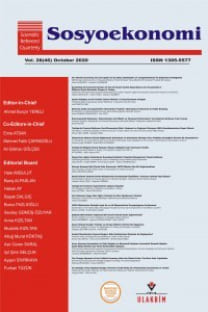Integrating the Informal Sector into the Formal Economy: Some Policy Implications
-
Integrating the Informal Sector into the Formal Economy: Some Policy Implications
-,
___
- Aguilar, E. (1995); “El Sindicato Nos Tiene con Vida Aqui: Occupational Organization, Political Behavior, and the Informal Sector in Costa Rica”, Dissertation, University of North Carolina, Chapel Hill.
- Bromley, R. (1994); ” Informality: De Soto Style: From Concept to Policy”, in Rakowski C. (ed.): Contrapunto: The Informal Sector Debate in Latin America, Albany: State University of New York Press.
- Chen, M. A. (2001); “Women in the Informal Sector: A Global Picture, the Global Movement”, SAIS Review, Vol: XXI No: 1 71-82.
- De Soto, H. (1986); “El Otro Sendero. La Revolucion Informal” Lima: Instituto Libertad y Democracia.
- (1995); “Por que Importa la Economia Informal?”, in Tokman, V. E. (ed.): El Sector Informal en America Latina, Dos Decados de Analisis, Mexico, Consejo Nacional para la Cultura y las Artes.
- Gümüş, T. (2000); “Dışsallık ve Kayıtdışı Ekonomi Kavramına İlişkin Bir Değerlendirme”, Gazi Üniversitesi İktisadi ve İdari Bilimler Fakültesi Dergisi, Vol: 2 No: 3 63-70.
- Hart, K. (1973); “Informal Income Opportunities and Urban Employment in Ghana”, Journal of Modern African Studies, Vol: 11 No: 1 61-89.
- http://www.house.gov/
- Ilgın, Y. (2002); “Kayıtdışı Ekonomiyi Tahmin Yöntemleri ve Türkiye’de Durum”, DPT Planlama Dergisi, Special Issue 145-55.
- ILO (1972); “Employment, Income and Equality. A Strategy for Increasing Productive Employment in Kenya”, Geneva: ILO.
- (1991); “Dilemma of the Informal Sector”, report of the Director General presented at the 78th International Labor Conference.
- (1997); “News Latin America and the Caribbean, 1997”, Labor Overview, No: 4, Lima, ILO Regional Office.
- (1999); “News Latin America and the Caribbean, 1999”, Labor Overview, No: 64, Lima, ILO Regional Office.
- ITC (2003a); “In India, Integrating the Informal Sector into the Global Economy”, ITC, Iss: 4, International Trade Centre.
- (2003b); “In South Africa, Crafts Revival Boosts Exports”, ITC, Iss: 4, International Trade Centre.
- (2003c); “Women’s Business Association Encourages Exporters in Cameroon”, ITC, Iss: 4, International Trade Centre.
- (2003d); “Nepalese Businesswoman Assists New Exporters”, ITC, Iss: 4, International Trade Centre.
- Lindbeck, A. (1983); “Budget Expansion and Cost Inflation”, American Economic Review, Vol: 73 No: 2 285-90.
- McKean, C.S. (1994); “Training and Technical Assistance for Small and Microenterprise: A Discussion of Their Effectiveness, in Rakowski”, C. (ed.): Contrapunto: The Informal Sector Debate in Latin America. Albany: State University of New York Press.
- Marsden, K. (1983); “Links Between Taxes and Economic Growth: Some Empirical Evidence”, World Bank Working Paper No: 605.
- Mavral, Ü. (2001); “Karapara Kayıtdışı Ekonomi İlişkisi ve Türkiye’ye Yansımaları”, Vergi Denetmenleri Derneği, Ankara.
- Moser, C. O.N. (1994); “The Informal Sector Debate, Part I, 1970-1983”, in Rakowski, C. (ed.): Contrapunto: The Informal Sector Debate in Latin America. Albany: State University of New York Press.
- Mundell, R. A. (1971); “The Dollar and The Policy Mix”, Princeton Essays in International Finance, Princeton University.
- OECD (2004); Revenue Statistics 1965-2003, Paris, OECD.
- Otero, M. (1994); “The Role of Governments and Private Institutions in Addressing the Informal Sector in Latin America”, in Rakowski, C. (ed.): Contrapunto: The Informal Sector Debate in Latin America. Albany: State University of New York Press.
- Öğünç, F and G. Yılmaz. (2000); “Estimating the Underground Economy in Turkey”, CBRT Research Department Discussion Paper No: 43.
- Önder, İ. (2001); “Kayıtdışı Ekonomi ve Vergileme”, İ.Ü. Siyasal Bilgiler Fakültesi Dergisi, No: 23-24.
- Özsoylu, A. F. (1998); ”2000’li Yıllara Doğru Türkiye’nin Önde Gelen Sorunlarına Yaklaşımlar”, Türkiye Genç İşadamları Derneği, İstanbul.
- Sarılı, M.A. (2002); “Türkiye’de Kayıt Dışı Ekonominin Boyutları, Nedenleri, Etkileri ve Alınması Gereken Tedbirler”, Bankacılar Dergisi, No: 41 32-50.
- Portes, A., M. Castells, L. Benton. (1989); “The Informal Economy: Studies in Advanced and Less-Developed Countries”, Baltimore and London, The Johns Hopkins University Press.
- Portes, A. (1996); “The Informal Economy, in Pozo”, S. (ed.): Exploring the Underground Economy: Studies of Illegal and Unreported Activity, Michigan: W.E. Upjohn, Institute for Employment Research.
- Pozo, S., (ed.) (1996); “Exploring the Underground Economy: Studies of Illegal and Unreported Activity”, Michigan: W.E. Upjohn, Institute for Employment Research.
- Rakowski, C., (ed.) (1994) “Contrapunto: The Informal Sector Debate in Latin America” Albany: State University of New York Press.
- Revilla, A. (1998); “La Modernizacion del Sector Informal y las Cargas Tributarias y Administrativas a las Empresas n el Peru”, ILO Working Paper No: 92.
- Reynolds, A. (1985); “Some International Comparisons of Supply-Side Tax Policy”, Acto Journal, Vol: 5 No: 2 543-69.
- Tokman, V.E. (1995); “Las Relaciones Entre Los Sectores Formal e Informal. Una Exploracion sobre su Naturalez”, in Tokman, V.E. (ed.): El Sector Informal en America Latina. Dos Decades de Analisis, Mexico, Consejo Nacional para la Cultura y las Artes.
- (2001); “Integrating the Informal Sector into the Modernization Process”, SAIS Review, Vol: XX I No: 1
- Us, V. (2004); “Kayıtdışı Ekonomi Tahmini Yöntem Önerisi: Türkiye Örneği”, Turkish Economic Association Discussion Paper No: 17.
- ISSN: 1305-5577
- Yayın Aralığı: 4
- Başlangıç: 2005
- Yayıncı: Sosyoekonomi Derneği
Bir İkilemin Belirsizliğindeki Bilim: Bilim İnsan İçin Özne Midir, Nesne Midir?
Dış Borçlanmaya Teorik Bir Bakış ve Dış Borçların Ekonomik Etkileri
Afganistan Vergi Mevzuatı ve Türk Müteahhitlik Firmaları Üzerindeki Etkisi
Doğrusal Olasılık ve Logit Modelleri ile Parametre Tahmini
M. Emin İNAL, Derviş TOPUZ, Okyay UÇAN
Integrating the Informal Sector into the Formal Economy: Some Policy Implications
Yükseköğretim Karma Malının Niteliği ve Finansmanı Üzerine
Küreselleşme Kavramı ve İçeriğine Genel Bir Bakış
2000 Kasım ve 2001 Şubat Krizlerinin Sermaye Piyasası Aracılık Sektörüne Etkileri
